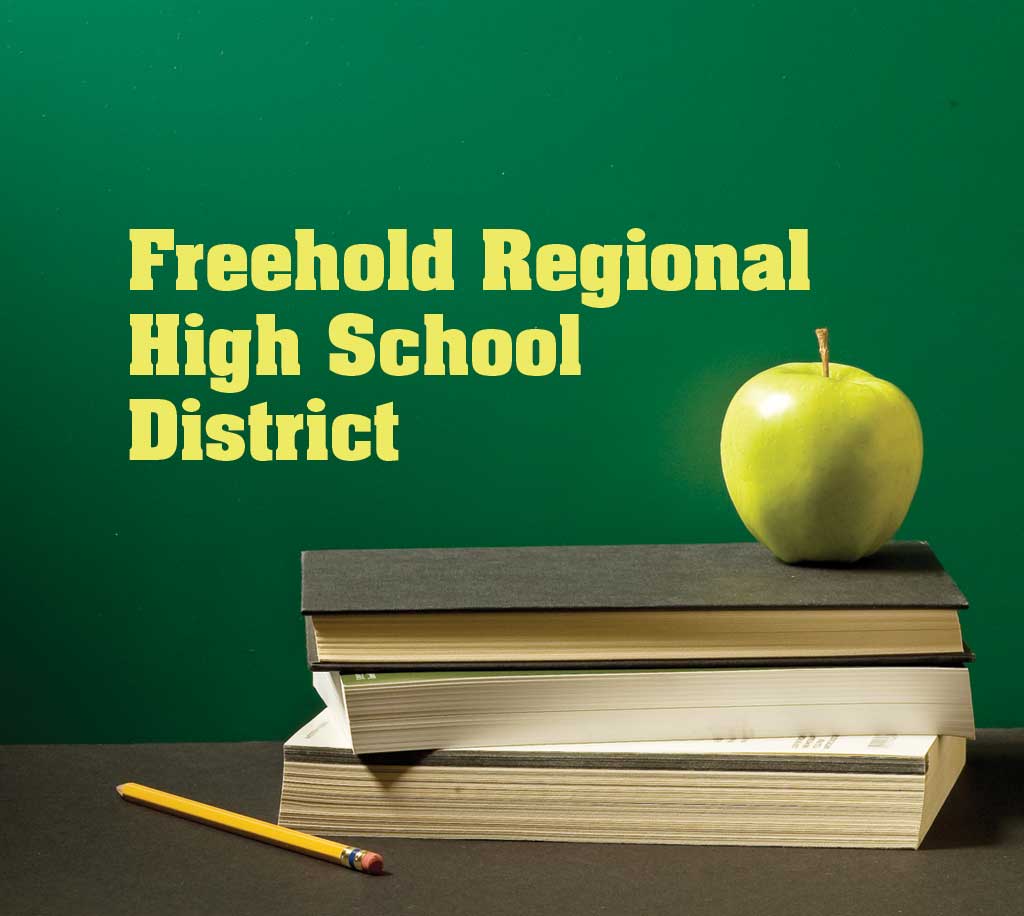The Freehold Regional High School District Board of Education will place three referendum questions before voters in the district’s eight sending municipalities on Election Day, Nov. 5.
In October 2018, voters in the district rejected a one-question $39.8 million facilities improvement referendum by a count of 4,300 “no” votes to 3,411 “yes” votes.
According to district administrators, the referendum in November will address the same issues that were placed before voters in October, with the exception of the replacement of a boiler at Marlboro High School. That project and a project to place air conditioning in the auditorium at Manalapan High School will be funded in the 2019-20 budget.
As for the Nov. 5 referendum, Superintendent of Schools Charles Sampson said, “Given that (the 2019 referendum) is essentially the same scope of work as the (2018) referendum, and after listening to feedback we received from the communities after the October election, we felt (offering multiple questions) was another approach that would allow the communities some opportunity to make some more specific selections.”
The Nov. 5 referendum was discussed by district administrators and board members during the March 18 board meeting.
Question No. 1, which administrators said could cost about $20 million, is expected to include security initiatives such as interior door locks, security vestibules and public address systems; roofing and paving work; and auditorium renovations at Freehold High School.
Question No. 2, which could cost about $12 million, includes bleacher replacements and new STEM (science, technology, engineering, mathematics) rooms at each high school.
Question No. 3, which could cost about $8.5 million, includes the installation of synthetic turf athletic fields at Freehold Township High School, Manalapan High School and Marlboro High School, and a new media center at Colts Neck High School.
Administrators said Question No. 2 and Question No. 3, together or individually, can only pass if Question No. 1 is approved by voters.
Assistant Superintendent for Business Administration Sean Boyce said the New Jersey Department of Education would fund a portion of the eligible costs of the projects that are being proposed in the Nov. 5 referendum. For the 2018 referendum, the state was prepared to fund 30 percent of the $39.8 million total, he said.
Peter Bruno, one of Howell’s two representatives on the school board, asked why the referendum was being presented to voters as three separate questions.
“Based on the feedback we’ve heard, we felt using three questions was another approach to give the community a choice” of what they want to approve, Boyce said.
Bruno said he believed that approach “can be a little confusing.”
“The feedback (in 2018) was that one question was confusing,” Sampson said. “We think we are going to bring clarity to the taxpayers with three questions” in November.
Amy Fankhauser, who is also a representative from Howell, asked why the passage of questions No. 2 and No. 3 is contingent on the passage of No. 1.
“No. 1 is the high priority items that need to be done or we cannot function,” Sampson said. “No. 2 and No. 3 are items we can put off longer.”
There was no discussion of the referendum questions’ possible impact on property taxes during the March 18 meeting.
“We have been efficient, we have waited until our debt is off the books from the construction of Colts Neck High School to move forward with this referendum,” Sampson said. “We are using two-thirds of that (former Colts Neck debt) to be repurposed into the schools (through the referendum) and one-third as tax relief to the taxpayers.
“When we put the referendum up for vote in November, we will categorize it in multiple questions in order to make it more palatable to those who have strong objections to things that are in there.
“The first question is going to be a significant amount of work that is going to have to happen in this district regardless, and while we are on this funding path (of losing state aid), that work will cannibalize the academic programs for our students unless it gets done in some other ways,” Sampson said.
Heshy Moses, who is Freehold Borough’s representative on the board and was a long-time teacher and coach in the district, said, “We sincerely hope that people will take the time to see what these questions are all about.”

